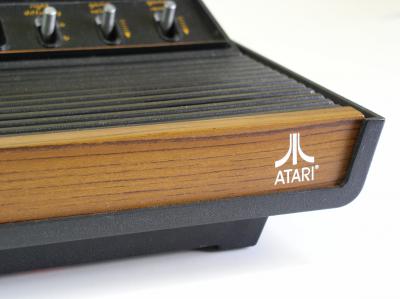I’m going to be completely honest here: I used the word “circumnavigating” purely because I think it’s a cool word. But I do think it fits pretty well with what I’d like to discuss today, so that worked out well.
Another open confession: Jessica and I were not prepared to deal with the omnipresence of media in our kids’ lives, and by media I mean electronic media, although I will include books as media in this post at times too.

How do we as parents navigate the treacherous waters of electronic media in our children’s lives?
We, parents, generally rely on our own childhood experiences to help shape how we will guide our children. In some instances, we want to replicate our own experiences for our offspring, and at other times, we choose to utterly reject what we grew up with, wanting something better for our kids than what we had. Generally speaking, our own experiences directly influence how we parent.
We remember family vacations with fondness, therefore we want memorable family vacations for our children.
We loved going camping as kids, so we now plan camping trips for our kids.
We thought Brussel sprouts were a swamp food good for mud-dwelling slimy creatures, so we never dish that up for dinner today.
From time to time, we will change our minds about some of the decisions we made as kids about how we would parent in the future. Some event usually triggers the change; new information about child development, about human biology, about margarine, or how we cook our foods, to name a few. After all, we shouldn’t stop learning just because we reached adulthood.
That’s why Jessica and I serve Brussel sprouts to our children. With bacon, brown sugar, and balsamic vinegar. Because a friend of ours prepared them for us that way a few years ago when he provided meals for our family one of the times Jessica was pregnant (by which I mean puking incessantly, because: HG). And it Blew. Our. Minds. And our tastebuds. And our children’s tastebuds.
We can adapt. We can change.
But it’s not easy.
So what happens when the world we grew up in is light years apart from the one we live in now? That’s how Jessica and I feel about the evolution of media in the last few decades.
When we were kids, there was one screen in the house: the television set in the family room. There was one way to play video games: on that television set.
This was the age before the internet. Really, if anyone ever wanted to create a new calendar, the birth of the internet should be year 0. I grew up in the BI age. (Before the Internet). The only computer we had in the house arrived on the scene when I was a teenager. It was an Apple Macintosh with a screen about the size of a current iPad mini, or maybe the iPhone 6. As a rare treat, my brother and I would occasionally be allowed to play a couple of awesome computer games on this amazing piece of technology. Chess, which was a challenge to beat in Easy mode (is that game even available on XBox today?) and another game whose name escapes me, but had to do with a space ship that was assaulted by a number of different space creatures that announced themselves with weird sounds as they popped onto the screen. I think you had to shoot them down. It was the best.
It had to be. It’s not like we had many options…
In my time (brace yourself: I’m about to sound like an old fart), the height of video games was the Atari 2600 (until I bought an NES with all the money I had). Asteroids was the bomb. I remember when we switched from a rotary phone to a touch tone phone. Seriously. Most of my free time was either spent reading, using my imagination, or playing board games.

It was easy for my parents to limit media time because there simply weren’t many options available. I got 30 minutes or so of cartoons when I got home while enjoying a snack and then it was off to do homework and piano practice. Once all my responsibilities were finished, all the kids’ shows were over on TV, so there really wasn’t any point in trying to sneak another screen fix – not that that would have been possible because of its proximity to the kitchen, where my mother was fixing dinner. I essentially grew up with a work before play type of approach to everything, including electronic media.
Fast forward 25 years or so and entertainment media opportunities are everywhere. Aside from our teenagers needing to reach their monthly quota of 5000 texts or so each, they can play games on their phones and also access the internet. And one of them isn’t even a smart phone! Our 16 yr old can watch Netflix on hers. “Play time” is everywhere. And because of this, we are having to re-evaluate “work before play” and figure out different approaches and work ethics with our kids. Heck, we’ve had to do that for ourselves, seeing as how a good portion of our jobs is on social media, “play time” for most normal people.
Jessica and I each have a computer that we use for work, and we also have a family computer that our kids use for educational purposes, for creative projects (you should check out our 14 yr old’s brainchild: A Girl With A View), and that’s about it!
Yeah right.
It’s also used to play Minecraft, and endless mindless internet-based games (no, really, they have no end), and for Netflix and Hulu, and let’s not forget YouTube, where all things worth watching are archived for your perusal for all eternity.
All of which brings us to the questions: what are we, as parents, supposed to do with all this entertainment media? How are we supposed to protect our children in the digital age? What’s the best way to limit how much and what our children are exposed to? And should we? Can we let this be an area of self-regulation? How do we do so without turning our family room into a war-torn battle zone? What other options are there?
It’s no simple thing, and if you’re like me, you’ll find yourself torn between what culture says is acceptable, what your children want, what their friends are doing, what other parents are saying, what science is discovering, and what your own childhood was like.
I have no easy answer, but in part 2 of this series I share 3 perspective changes that I have made for myself as we’ve been figuring out how to approach this challenge as parents.
~ Jeremy






You nailed it, Jeremy. It is a whole new world. I was hoping you had some awesome bullet-proof answers for me, but I enjoyed your articulation of the problem immensely, nonetheless! Glad to know there are others struggling with this. We just got Jack—who’s entering middle school (can you believe it?!)—a phone. He’ll be flying alone internationally to a soccer camp, and it seemed prudent for him to have a way to contact us. I’m still uneasy about all we’ve just given him access to, though. Thank you for opening up a dialogue on this important parenting topic!
Thank you! It seems perfectly reasonable to me that Jack should have a cell phone at this time. It was when Ophélia was left stranded outside of a ballet studio after hours in downtown Houston that we decided that she needed one. We need to be able to reach our children, and they need to be able to get a hold of us too. I just posted part 2 of the series. I’m afraid more concrete answers will have to wait until parts 3 and 4! ~ Jeremy